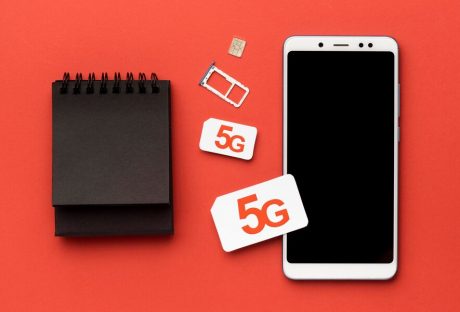With the Covid-19 pandemic in the equation, the hotel industry is no longer the same. However, it’s here to stay, just as much as the pandemic might persist in the long haul. People will continue to travel, seek business accommodation from Northampton, dine, and hold business conferences, even as the pandemic rages.
With travel restrictions, lockdowns, and social distancing measures, the hotel industry has been hit hard by the effects of the pandemic. However, it’s only a case of being down but not out. Now is the time to prepare accordingly to equalize the damage caused by the pandemic and to prevent any possible future damage caused by the same or a different emergency.
By managing insurance policies and even conserving cash in the hospitality sector, the industry can acquire a comprehensive level of preparedness that can protect it, its team, and its customers in the long run.
How technology will transform the hotel industry post Covid-19
While focused on maintaining a business, the main priority of the hotel industry in this era is to protect guests and staff against the COVID-19 pandemic. With this on the table, the industry is keen on adopting cutting-edge technologies that can offer solutions without interfering with the underlying business prospects.
Across every industry, the pandemic has given birth to new norms. Mask wearing, hand-sanitizing, and social distancing have become universally accepted in all sectors including the hospitality industry. In addition to these, what more does the industry need to restore consumer confidence and revive its economy?
Across the globe, hotels have adopted scannable QR codes and contactless hotel-booking and check-in procedures instead of traditional tangible menus and catalogs. The hospitality industry can also take advantage of Google review QR code, so customers can easily rate their services online. Touchless payments, mobile room keys, in-app appointment booking, and orders have become the new norms.
With various types of technology in the offing to keep the economy rolling, the following are better placed and more relevant to the hospitality sector.
Compliance monitoring
Compliance protocols are gaining more priority as people try to remain relevant to the condition. For instance, the introduction of AI facial recognition engines with extra features to match the COVID-19 situation.
Such technologies have integrated mask-detection features that allow it to identify individuals even while wearing masks. This helps alert the management in real-time when someone accesses the premises without a mask or improperly wears one.
Another important component of compliance is thermal-camera integration. With social distancing procedures, temperature taking from a distance will become the norm going forward.
Location detection
Covid-19 pandemic has created a situation where people need to share real-time information. Some countries have already come up with location-detection apps, which passengers entering the country have to download immediately when they land at the airport.
Going forward, investing in location-sensitive apps and geofencing technology is becoming the new norm for travel brands. This will facilitate the acquisition and sharing of real-time information that can restore consumer confidence in the industry’s overall safety.
This practice will work especially for people who opt for road-trips to reinforce social distancing. For instance, hotels could install geofences that deliver push notifications to visitors within a certain radius. Importantly, the notifications could come with special offers or promotions, giving them an edge over their local competitors.
Location data could also help activate contactless check-in upon arrival at the hotels and during checkouts. Using the same technology, accommodation facilities can communicate on-site capacity limits and other conditions to their visitors in real-time. This could help avoid congestion in the facilities.
Similarly, rail and bus operators can use the same technology to alert their passengers on arrival times. This can help avoid overcrowding at stations and platforms.
Touchless communications
To enforce a new way of guest engagement during and after the pandemic, the hotel industry needs to go contactless. This would help lower the spread of the virus from surface-to-surface contact. Reliable providers are already helping boarding facilities integrate contactless technology in their Property Management System.
This technology facilitates real-time, secure communication between hotel staff and guests. The staff responds immediately to the guest’s needs even without asking for their name or room number. Another contactless option is to activate AI technology like chatbots that can communicate in multiple languages.
With contactless technology, guests would even be able to access hotel services through their mobile devices. Alternatively, they can pair their mobile devices with hotel electronics like in-room TVs. This can help them accomplish much more by just scanning a QR code.
Super sterilization and robotic technology
In addition to these technologies, the hotel industry should consider investing in super sterilization technology as well as robotic technology. Reliable tech companies are already coming up with FDA-approved solutions that would ensure surfaces remain super sanitized to prevent any chances of spread.
Similarly, robotic hotel staff will reduce person-to-person contact, aimed at minimizing the effects of the Coronavirus pandemic. Some tech companies have already invented hotel robots that can deliver water bottles, fresh towels, and other hotel amenities to hotel guests.
Apart from that, social robotics may also lead the industry to a better position with caretaking approaches. These can understand users better with unbiased approaches. Their consistent performance can be the key to the future development of the hospitality industry.
Final thoughts
Even as the hospitality industry reopens for business, we should be ready to adopt the ‘new normal.’ Besides, consumer expectation is going to be higher post-pandemic, which is why only facilities that will cater to consumer needs will be able to win brand loyalty.
The COVID-19 pandemic has undoubtedly prompted the inclusion of new technologies into hotel operations. Tech features that could have been otherwise used as novelties or extra conveniences have become a solid part of the system. Integrating them fully into the hospitality system could see the industry thrive during and after the pandemic.
Read Also:






















